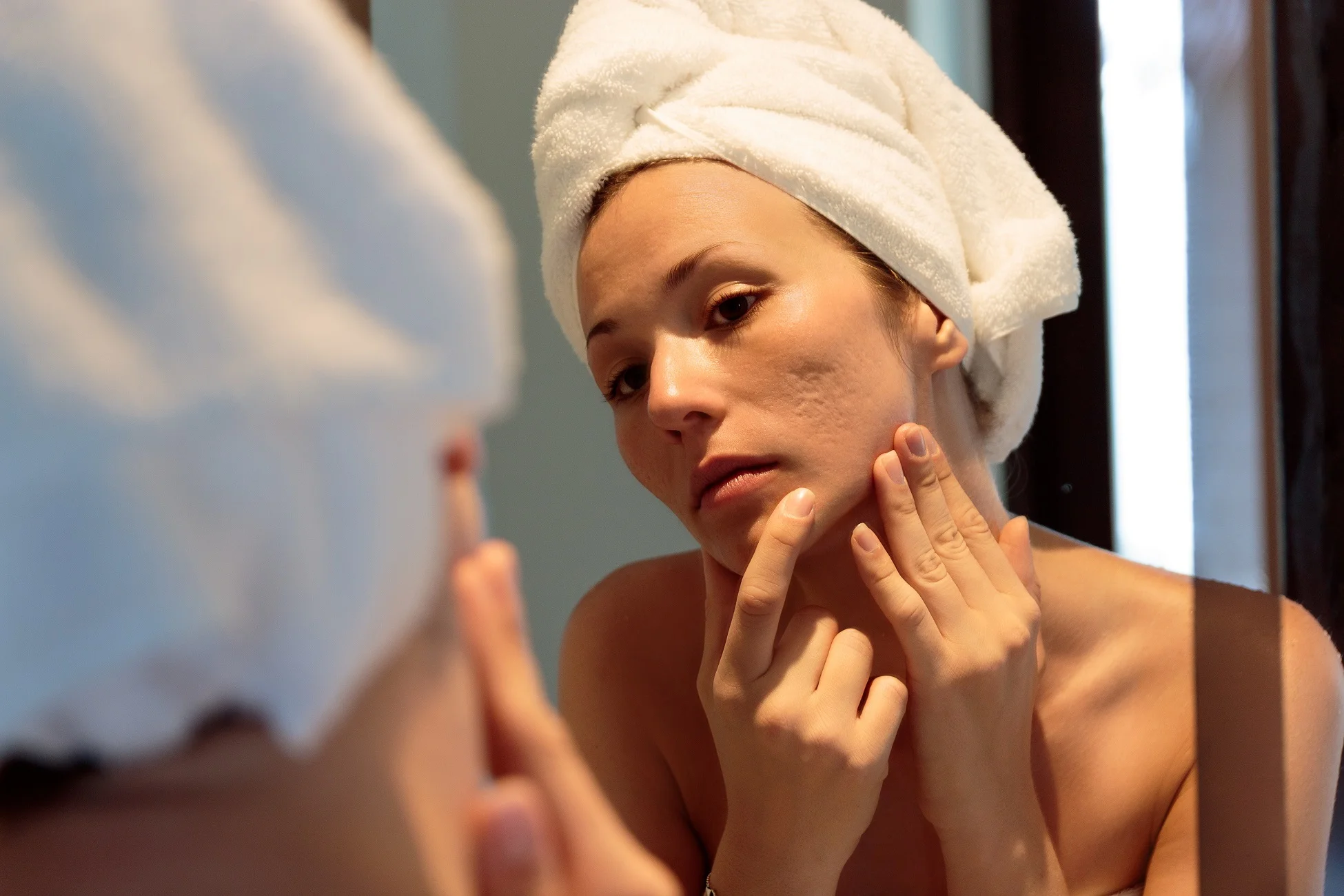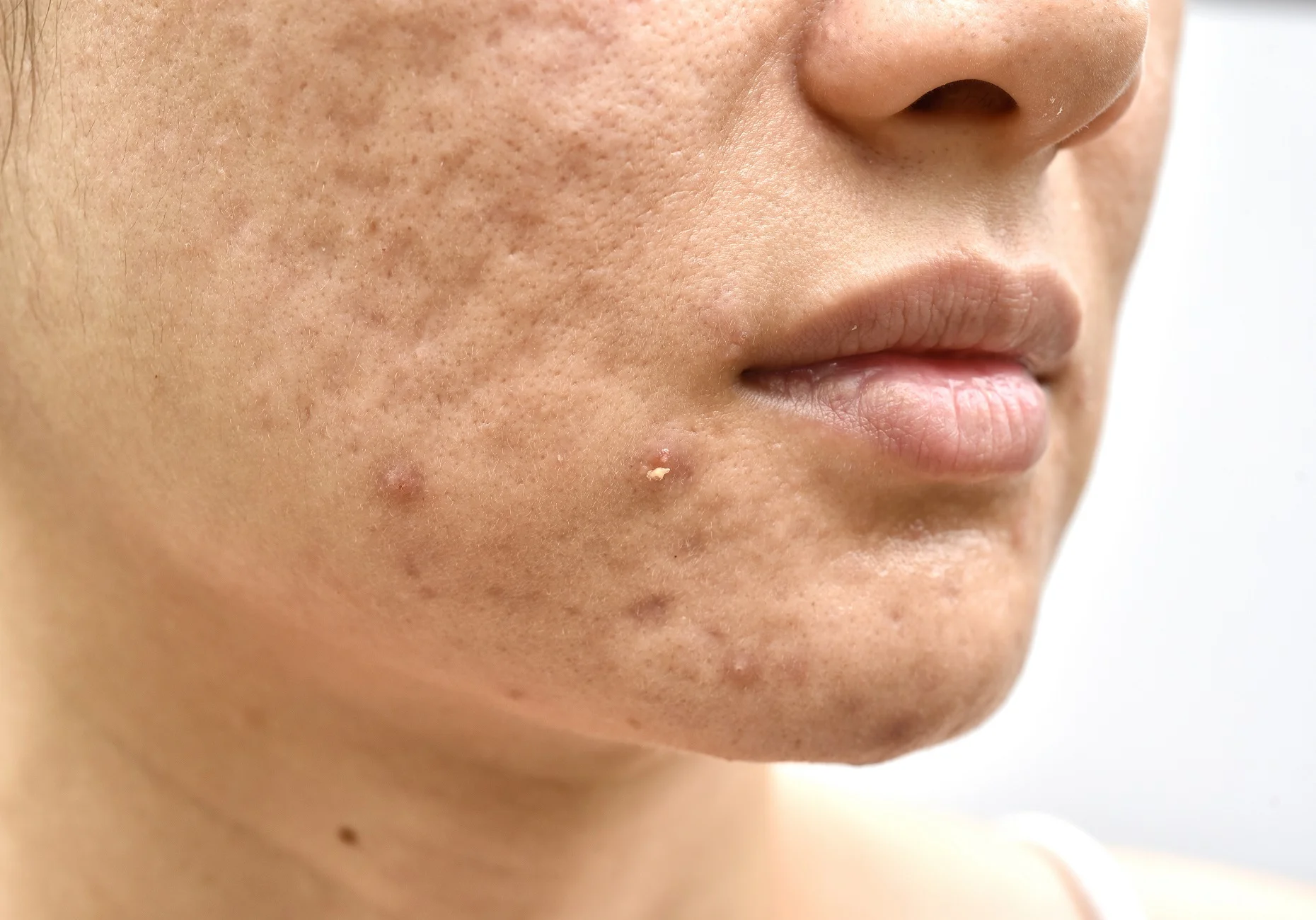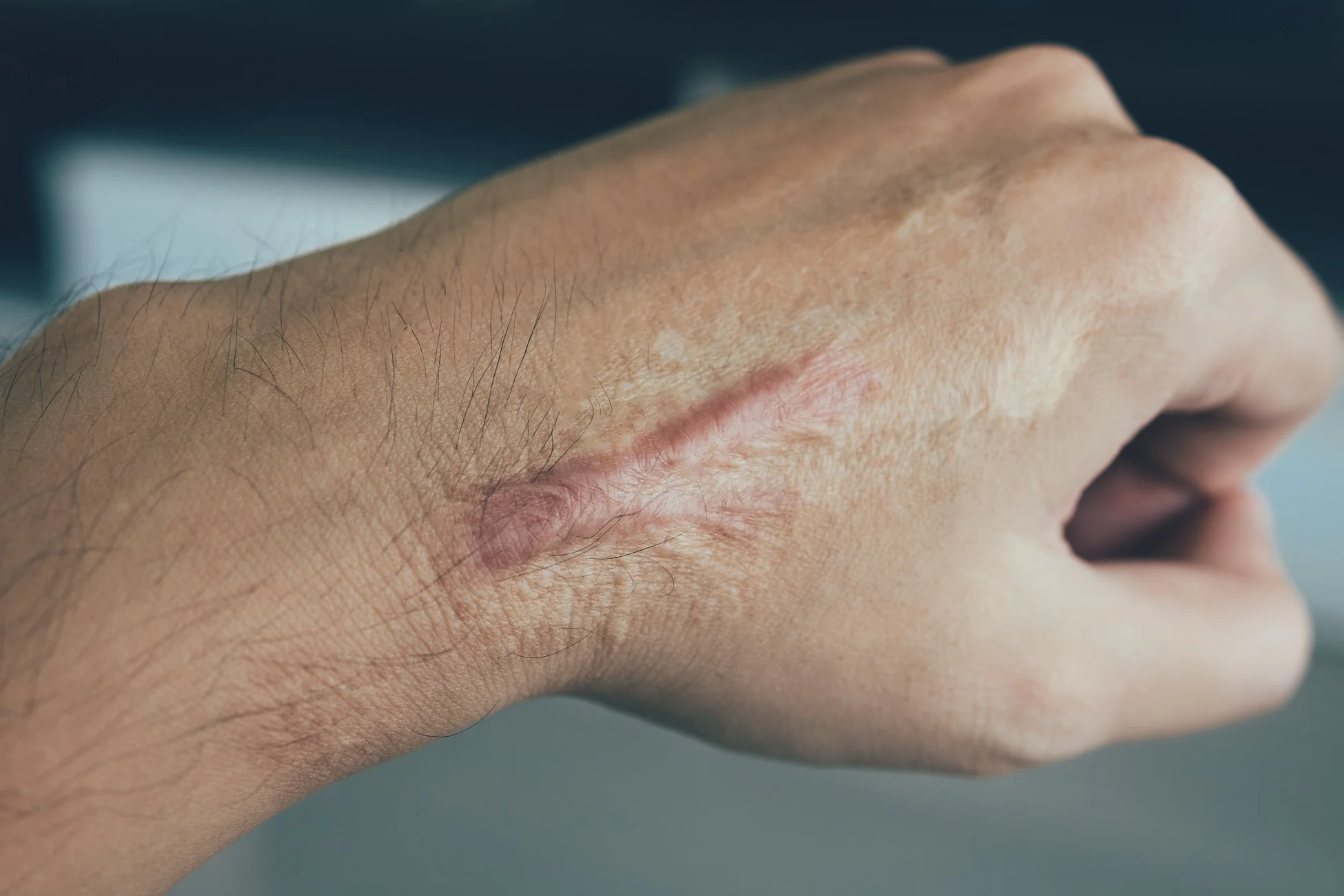Scars

Scars Treatment
Scars are thick, fibrous areas that form as part of the skin’s healing process after an injury. They can result from surgical incisions, acne, burns, cuts, or other skin injuries. Scars vary in appearance, with common types including hypertrophic scars, which are raised and red; keloid scars that extend beyond the actual injury site; and atrophic scars, which are sunken or pitted, often seen after acne or chickenpox. Scars can affect a person’s appearance and self-confidence, making them a source of frustration for many. There are a variety of treatments available for reducing the appearance of scars, including silicone sheets, microneedling, topical treatments, and laser therapy. Consulting with a dermatologist is very important to assess your specific type of scar and create a personalized treatment plan that can help minimize its visibility and improve the overall texture of your skin.
Scars affect people of all ages and any skin type, depending on the nature and extent of the injury that caused them. When seeking treatment for Scars in Northbrook, IL, you can expect an intensive evaluation by a dermatologist who will recommend the most appropriate treatments based on the type and severity of your scars. Treatment duration varies; some may see improvement within a few weeks, while others may require several months for optimal results. If you’re looking to reduce the visibility of your scars and improve your skin’s appearance, consider booking an appointment at Derm Collective North Shore in Northbrook, IL, to explore effective treatment options that suit your needs.
Acne Scars
Acne scars are the result of severe or prolonged acne, where inflammation damages the skin and underlying tissue, leading to permanent marks. The etiology involves the skin’s healing process, where too much or too little collagen is produced, resulting in different types of scars. Common types include atrophic scars, such as ice pick, boxcar, and rolling scars, which are sunken and create an uneven skin texture. Acne scars can be particularly frustrating due to their impact on appearance and self-esteem. Treatment options for acne scars typically vary depending on the type of scar and may include chemical peels, laser therapy, microneedling, and dermal fillers to smooth and improve skin texture. Seeing a dermatologist is crucial for an accurate assessment and to give you a personalized treatment plan that effectively addresses acne scars, helping to restore a smoother, more even complexion and boost confidence.


Keloid/Hypertrophic Scars
Keloid and hypertrophic scars are types of raised scars that form as a result of an overactive healing process following skin injury. The etiology involves excessive collagen production during wound healing, leading to thick, raised scar tissue. Keloid scars extend beyond the original wound site and can continue to grow over time, while hypertrophic scars remain within the area of the injury but are still raised and red. These scars can be itchy, painful, and aesthetically frustrating, often affecting self-confidence. To reduce their size and appearance, treatment options may include corticosteroid injections, silicone sheets, cryotherapy, and laser treatments.
Benefits of Treating Scars
- Reduces the appearance of scars
- Improves skin texture and smoothness
- Boosts self-confidence and self-esteem
- Minimizes redness and discoloration
- Customizable treatment plans tailored to your skin
- Helps prevent further scarring or worsening of existing scars
- Enhances overall skin appearance
- Supports long-term skin health
- Non-surgical treatment options available
- Professional care and guidance throughout the treatment process
Faqs About Scars
Can all types of scars be treated effectively?
Most types of scars can be improved with treatment, but the effectiveness depends on the scar type, age, and severity. Some scars may respond better to certain treatments than others, and multiple sessions may be needed for optimal results.
Is scar treatment painful?
The level of discomfort during scar treatment varies depending on the method used. Topical treatments and silicone sheets typically cause little to no discomfort, while procedures like microneedling or laser therapy may involve mild to moderate discomfort, which can be managed with numbing agents.
How soon after an injury can I start scar treatment?
Scar therapy should begin after the wound is healed. It’s most effective to begin treatment in the early stages of the scar formation as results are typically best.
Are there any side effects associated with scar treatments?
Side effects vary depending on the treatment. Common side effects may include redness, swelling, or temporary skin sensitivity. Your dermatologist will discuss potential side effects and how to manage them during your consultation.
Can scar treatments completely remove scars?
While treatments can help to significantly reduce the appearance of scars, completely removing them is usually not possible. The goal of treatment is to make scars less noticeable and improve skin texture.
How do I care for my skin after scar treatment?
Post-treatment care typically involves keeping the treated area clean, avoiding sun exposure, and using any prescribed creams or ointments to promote healing. In accordance with the treatment you receive, your dermatologist has specific aftercare instructions for you.

